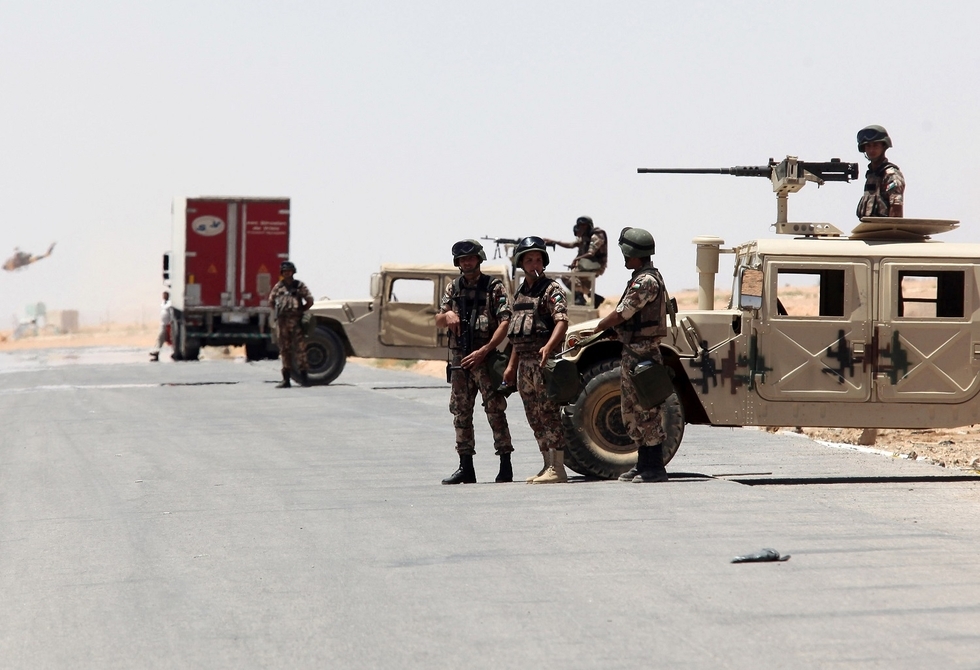Jordan border crossing with Iraq to reopen in major boost to ties

Jordan will open its main border crossing with Iraq on Wednesday for the first time since 2015 now that Iraqi forces have gained control of the main highway to Baghdad from Islamic State (IS) group militants, officials said on Tuesday.
Iraqi troops pulled out of the Tureibil post, on the 180 km-border, in the summer of 2014 after the militants secured nearly all of the official crossings of the western frontier as they swept through a third of the country.
Commercial traffic continued for a year after until Iraq launched an offensive in July 2015 to reclaim the area and deprive the militants of funds raised from truck drivers forced to pay a tax on cargo coming in from Jordan.
Officials say customs and border arrangements have been finalised, with security measures in place to ensure the 550 km highway from the border to Baghdad was safe.
"The opening of the crossing is of great importance to Jordan and Iraq ... It's a crucial artery. Jordan and Iraq have been discussing reopening it for a while," Interior Minister Ghaleb al Zubi said last week.
Zubi did not specify a date then, but several trade and business officials have said they have been invited to an event on Wednesday to mark the re-opening.
Since last year, the Iraqi army has regained most of the Anbar province's main towns that fell to IS.
Iraq has also been working on securing the highway which connects Iraq's Basra port in the south to Jordan, where the Red Sea port of Aqaba has long served as a gateway for Iraqi imports coming from Europe.
Jordan hopes the reopening of the route will revive exports to Iraq, once the kingdom's main export market, which accounted for almost a fifth of domestic exports or about $1.2bn a year, according to the International Monetary Fund.
They have fallen by more than 50 percent from pre-crisis levels.
"This will increase industrial exports and also revive the two countries' trucking industry. It's a major boost to the economy," said Nael Husami, general manager of the Amman Chamber of Industry, adding that transport costs would fall by nearly half.
Jordanian exporters have had to use more expensive sea routes to Iraq's Um Qasr port or another land route across Saudi Arabia and Kuwait, businessmen say.
The restoration of trade links will also give a push to an oil pipeline project running from Basra to Aqaba. Jordan's Prime Minister Hani al-Mulki had visited Baghdad earlier this year to revive the frozen project.
Jordanian officials are hopeful the crossing with Syria on its northern border can also open by the end of the year once a US-Russian de-escalation zone in southwest Syria that includes the area is cemented.
New MEE newsletter: Jerusalem Dispatch
Sign up to get the latest insights and analysis on Israel-Palestine, alongside Turkey Unpacked and other MEE newsletters
Middle East Eye delivers independent and unrivalled coverage and analysis of the Middle East, North Africa and beyond. To learn more about republishing this content and the associated fees, please fill out this form. More about MEE can be found here.




